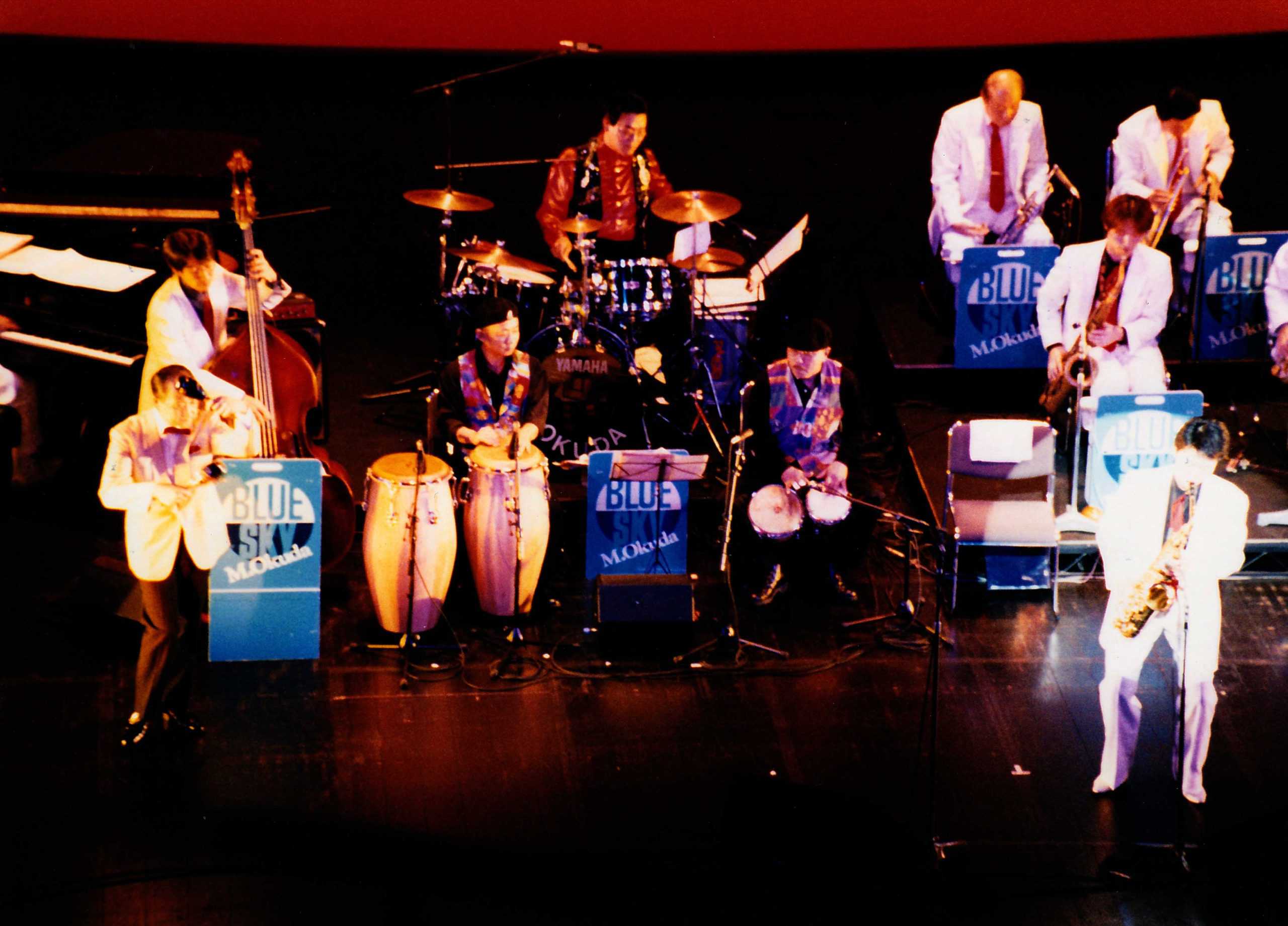Radio Roppongi

I was determined this trip to find some local music. Yamaha saxophones, Keiko Matsui, Hiroshima — Tokyo must be abuzz with jazz. I found a club named STB 139, aka Sweet Basil. How could I go wrong with one of my favorite spices? I scheduled my day to end up near Roppongi. In spite of its “Westerner” venue, the open seating area was populated entirely by Japanese. I had found a local spot .
The STB logo was parsed in English to the letters of its origin: Sound-ful Taste-ful herB-ful. I was getting used to not understanding Japanese logic. A big band came on, featuring a colorful young guitarist. The spotlight held him through several tunes. He was good!
The main attraction was next. This older gentleman had the experience and confidence to take his time on stage. He played with a vitality and maturity that made me think of classic American trumpeters I had seen.
At one point he was talking in English about Miles Davis. “I haven’t decided what to call this one yet. It’s for Miles Davis. I think “Miles Smiles.” He looked directly at me and posed the question: “Or should it be Smiles Miles?”
“Miles Smiles” I answered. I was pleased and impressed that someone had talked to me. With so many examples of Japanese writers not asking for a native opinion in their translation, his request was a sign of comfort with things beyond Japan. But then, anyone studying and practicing music would naturally be drawn to the international community.
He went on to play the tune, bending over the instrument, putting thought into each riff, each note. I listened attentively, feeling in my element at last, however singly, anonymously. The music filled the room, embracing and comforting in way I could not find elsewhere in the streets of Tokyo. Music truly was a universal language.
Emerging into the cool evening air, I was once again startled by my locality – this time because it was so foreign from recent days. I was not really comfortable in Tokyo, but at least I was getting used to it. Roppongi seemed so out of place, an enclave of everything that was not Japanese. Many westerners stayed nearby, perhaps to shelter themselves from the onslaught of such a foreign culture; perhaps to band together for a sense of camaraderie and survival when so clearly overwhelmed and personally isolated.
For my part, I was saddened and embarrassed by Roppongi, by the contribution the West had made to this culture. Hawkers yelled in your face, handing out advertisements for pornography and prostitution. Some of the girls themselves hailed the sidewalk revelers.
I didn’t come to Japan to see a Western re-interpretation of the world: I came to see a Japanese view. Surely there was prostitution in Japan — some associated with business exchanges in a way I had heard about but not seen. The contrast was between the level of subtlety offered by each culture. I walked quickly through the strange crowd, heading toward the subway. After so many days of being alone amidst the silent Japanese, I realized I preferred their company to the western squalor of this upscale version of San Francisco’s Tenderloin. I left them to it.

Leave a Reply